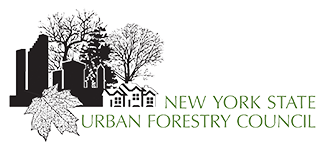Thank you to the marvelous Danielle Watson of the Society of American Foresters for this update and to American Forests for providing always-helpful resources.
The budget reconciliation and bipartisan infrastructure bills have been drafted and are expected to see important action in Congress this month, likely before October 31. These bills, combined, contain roughly $50 billion of support for the forestry community (e.g., wildfire resilience projects, large-scale reforestation initiatives that would help bring our national forests back to life, carbon incentives for private forest landowners and urban forestry job training programs). $3 Billion ($300 Million annually over ten years) is proposed to go towards Urban and Community Forestry.
Please call, write, email and use social media to let your national Congressperson and Senators know why this funding is important to you and your community. Some Talking Points are provided below from American Forests. It’s always good to add a personal anecdote.
If you are active on social media, the following hashtags and social media accounts may prove helpful in sharing your message:
- #Forests4Climate
- #Infrastructurebill or #Infrastructure (for the infrastructure bill)
- #BuildBackBetter (for the reconciliation bill)
Social Media Accounts to Tag:
- @SenAgDems
- @HouseAgDems
- @SenateDems
- @HouseDemocrats
Talking Points
- Extreme Heat and Weather Events
- Trees are our most important natural defense against extreme heat and air pollution, which could claim as many as 100,000 lives per year by the end of the century if we don’t act.
- On average, urban heat islands are 5 to 7 degrees warmer during the day and can increase temperatures by as much as 22 degrees at night.
- Sparse tree cover in underserved communities is contributing to community disasters such as urban flooding and human heat deaths in our cities – disproportionately affecting vulnerable populations
- Climate
- Trees in urban areas of the U.S. are responsible for 20 percent of all of the carbon emissions that forests in the U.S. capture and store.
- More trees means less use of air conditioners and heaters, resulting in millions of tons of carbon that are not emitted. Trees help us adapt to climate change by absorbing water (which reduces flood risks), reducing air temperatures, and more.
- Creating Jobs and Boosting the Economy
- Approximately 26 jobs are created for every $1 million invested in urban forestry
- Planting and taking care of trees create jobs all along the urban forestry supply pipeline, from digging holes to taking care of trees to creating wood furniture, plus numerous adjacent jobs held by people who support these workers (i.e., tool manufacturers, restaurants, shippers, etc).
- Trees also lower utility costs by $7.8 billion nation-wide by shading buildings in the summer and blocking wind in the winter.
- Health
- In addition to saving lives, urban tree canopy has numerous physical and mental health benefits, including reduction of ailments like asthma and heart disease.


